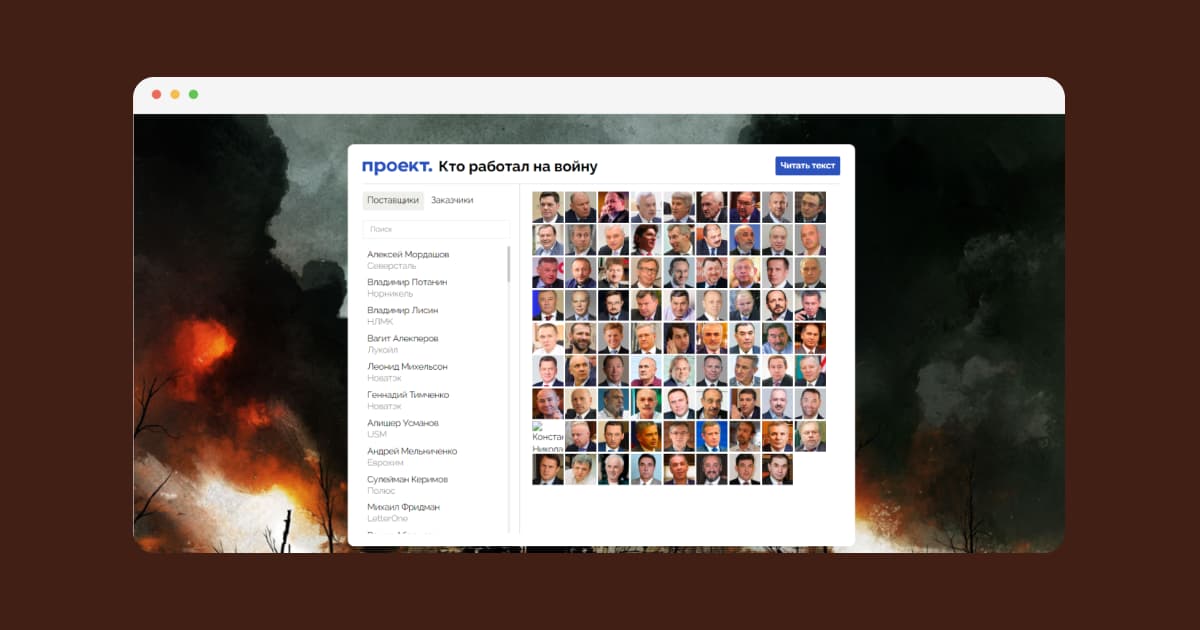At least 81 Russian oligarchs openly finance the Russian army

Russian journalists have found that among the two hundred richest Russians, according to Forbes magazine, at least 81 oligarchs openly finance the Russian army.
This is stated in an investigation by the Proekt (Project) media outlet.
The journalists say they signed open contracts with the Russian Ministry of Defence for at least RUB 220 billion between 2014 and 2023.
Among them are Alexei Mordashov (Severstal), Vladimir Potanin (Norilsk Nickel), Vagita Alekperova (Lukoil), Mikhail Fridman (LetterOne), Raman Abramovich (Millhouse), Gennady Timchenko (Novatek), Alisher Usmanov (USM), Yuri Kovalchuk (Bank Rossiya), and Arkady Rotenberg (Mostotrest).
Currently, 80 of these oligarchs are under sanctions, but only 14 are subject to restrictions in all of Ukraine's allied countries. Another 34 are restricted only in Ukraine.
Other wealthy Russians hide their funding of the Russian army.
In particular, the Drama Theatre in Mariupol was attacked with FAB-500 bombs. Investigators point out that aluminium powder is supplied to the manufacturer of this bomb by the structures of Oleg Deripaska (En+ Group) and Viktor Vekselberg (Renova). Components for the bomb are provided by a company in which businessman Vladimir Yevtushenkov (AFK Sistema) has a share.
In addition, the journalists say that Yevtushenkov's company supplied aluminium armour for the airborne fighting vehicles used by the Russian military to shoot residents of Bucha.
According to the newspaper, businessmen Mikhail Shelkov (VSMPO-AVISMA), Yevgeny Zubitsky (KOKS Group), the Rotenberg family and Dmitry Mazepin (Uralchem) also supplied the materials for the production of these combat vehicles and weapons for them. The latter was engaged in the supply of ammonia and ammonium nitrate to manufacturers of explosives and ammunition.
The Project's investigators also analysed state contracts that companies partially or wholly owned by these oligarchs signed with defence plants, the Ministry of Defence and the Rosgvardia. However, in 2017, the Russian Defence Ministry began to keep its contracts secret, so most of the agreements found date back to 2014-2018. Accordingly, the number of businessmen supporting the war may be higher.


